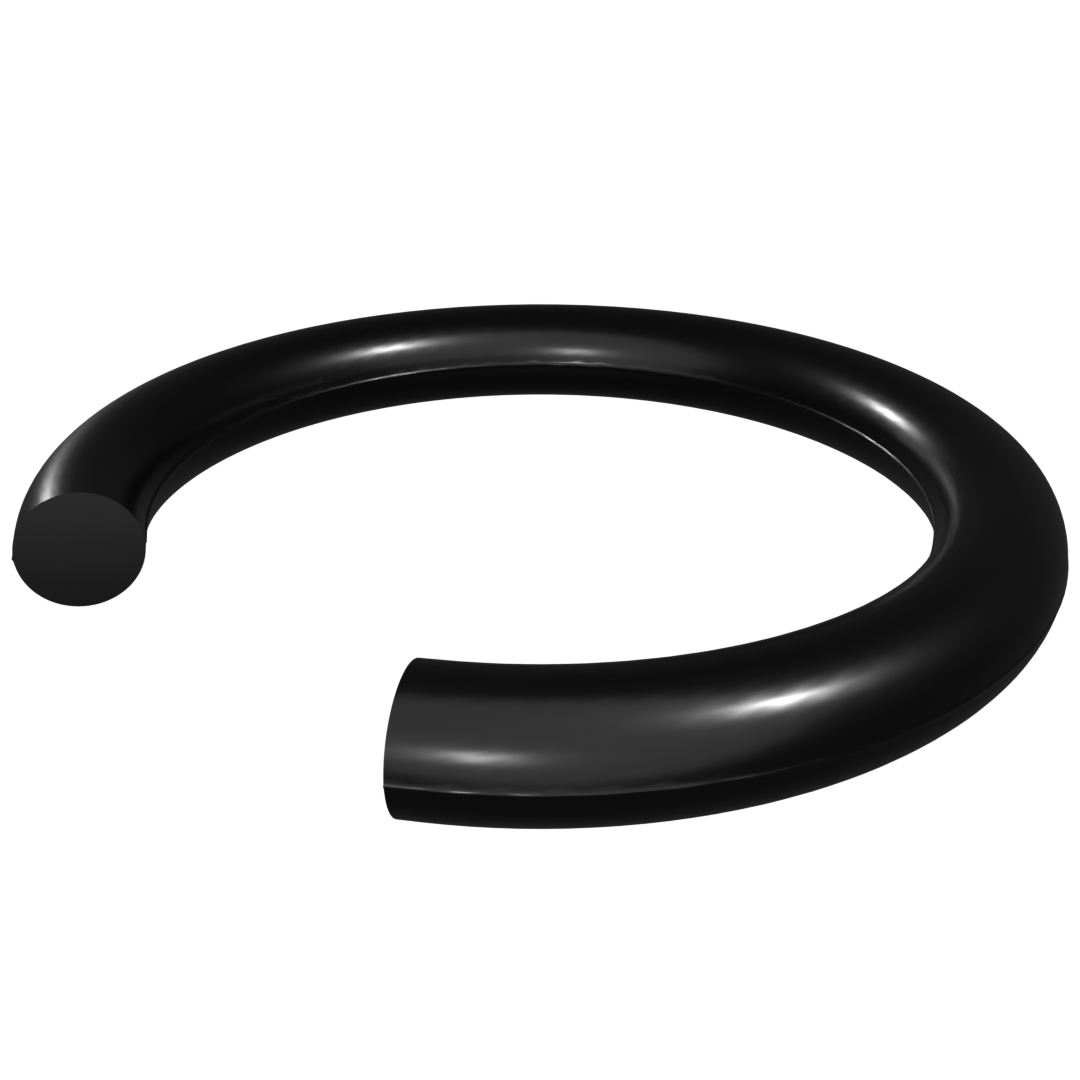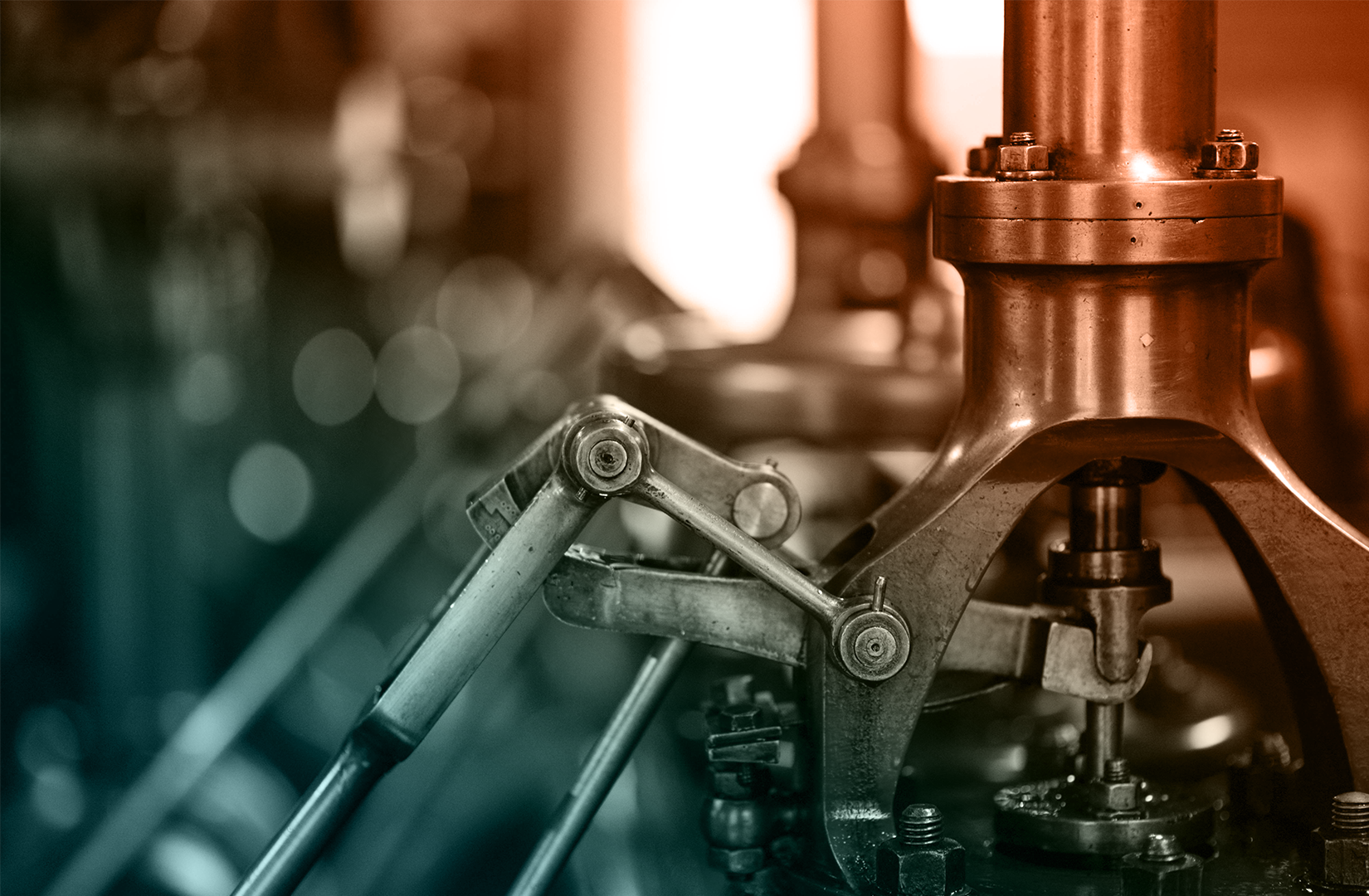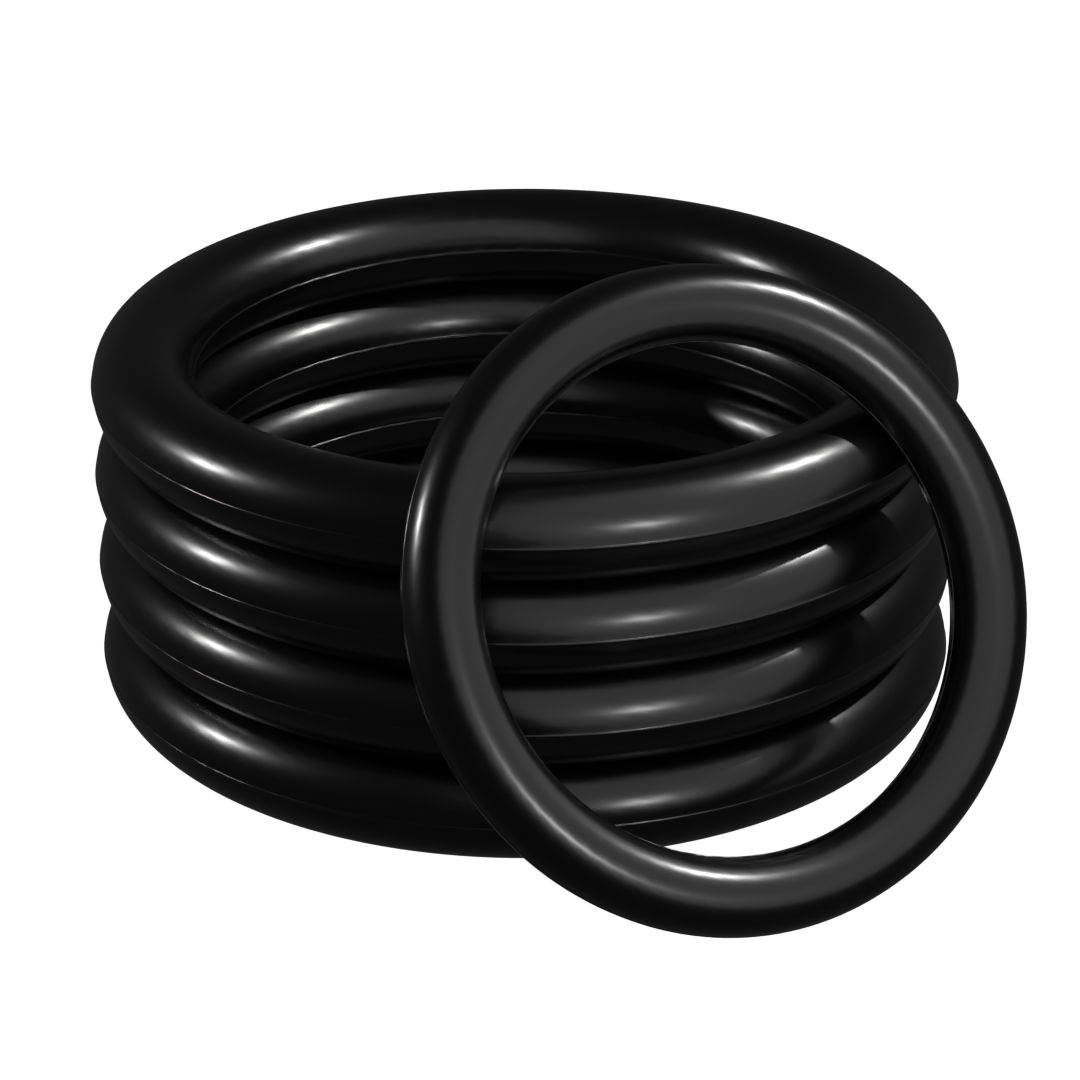
ACM (Acrylic Rubber) Rubber
ACM (Acrylic Rubber) is a synthetic elastomer known for its excellent resistance to oils, heat, and oxidation, making it ideal for applications in automotive and industrial settings. Acrylic rubber is commonly used in environments where exposure to oils, high temperatures, and chemicals is a concern. It offers a balance of flexibility, durability, and resistance to degradation, making it a reliable material for seals, gaskets, and hoses in harsh environments.
Check with one of Canyon’s helpful product engineers for an expert material and manufacturing recommendation.
Common names include: Acrylate Rubber, ACM Rubber, Hytemp, Denka ACM, Nipol AR, Noxtite.

Features of ACM Rubber
ACM rubber provides several key features that make it suitable for high-performance applications:
- Heat Resistance: ACM rubber can withstand high temperatures, making it suitable for engine components and industrial machinery.
- Excellent Oil Resistance: ACM rubber has strong resistance to oils, greases, and fuels, which makes it ideal for use in environments where exposure to these substances is common.
- Good Oxidation and Ozone Resistance: ACM offers good resistance to environmental factors like ozone and oxidation, ensuring long-lasting performance in outdoor and industrial settings.
- Moderate Flexibility: ACM retains its flexibility even in high-temperature environments, ensuring it remains functional in dynamic applications such as seals and gaskets.
- Compression Set Resistance: ACM rubber provides good resistance to permanent deformation under pressure, ensuring it maintains its sealing properties over time.
Common Applications of ACM Rubber
Due to its unique properties, ACM rubber is commonly used in the following applications:
- Automotive Seals and Gaskets: ACM rubber is widely used in automotive applications, particularly for seals, gaskets, and O-rings in engine components that require resistance to high temperatures and oil exposure.
- Transmission and Power Steering Systems: In automotive transmission and power steering systems, ACM rubber is used for seals and hoses to prevent leakage and ensure durability in oil-rich environments.
- Industrial Machinery: ACM rubber is used in seals and gaskets for industrial machinery that operates under high temperatures and where exposure to oils and greases is common.
- Hoses and Tubing: ACM is ideal for producing hoses and tubing used in oil and chemical transfer, offering both flexibility and resistance to degradation.
- Electrical Insulation: ACM rubber can also be used in electrical applications as insulation for cables and wires due to its resistance to heat and environmental factors.
Please consult a Canyon Components Engineer about your specific application and we will use our decades of experience to formulate a solution that fits your need.
Get a Quote Now!

ACM (Acrylic Rubber) Rubber Pros & Cons
ACM (Acrylic Rubber) is a high-performance synthetic elastomer designed for applications that require resistance to oils, heat, and environmental factors. Its excellent durability and stability under high temperatures make it a popular choice in the automotive and industrial sectors, particularly for seals, gaskets, hoses, and other components. While ACM rubber has some limitations, such as poor low-temperature performance and limited chemical resistance, its strengths in oil-rich and high-temperature environments make it an indispensable material in many demanding applications. Understanding the features, applications, and potential drawbacks of ACM rubber will help you choose the right material for your specific needs.
Canyon Components strives to meet all customer service requests. Feel free to contact Canyon Components engineering and let our knowledgeable staff help you design the perfect part for your needs.
Pros of ACM Rubber
ACM rubber provides several advantages that make it a popular choice in automotive and industrial applications:
- Excellent Oil and Heat Resistance: ACM rubber's ability to resist oils, fuels, and high temperatures makes it ideal for use in engine components, industrial machinery, and automotive systems.
- Durability in Harsh Environments: ACM rubber offers good resistance to oxidation, ozone, and environmental degradation, ensuring long-lasting performance in outdoor or harsh environments.
- Good Compression Set Resistance: ACM rubber maintains its shape and functionality even after prolonged pressure, making it suitable for use in seals and gaskets.
- Stable Performance in High Temperatures: ACM rubber performs well in high-temperature environments, making it ideal for use in engines and other heat-generating machinery.
Cons of ACM Rubber
While ACM rubber offers many benefits, there are also some limitations to consider:
- Poor Low-Temperature Flexibility: ACM rubber does not perform well at very low temperatures, where it can become brittle, limiting its use in cold environments.
- Limited Chemical Resistance: While ACM offers excellent resistance to oils and fuels, it is not suitable for environments with strong acids, alkalis, or other harsh chemicals.
- Higher Cost: ACM rubber is typically more expensive than general-purpose elastomers like EPDM or SBR, making it a more costly choice for applications where its specific properties are not required.
- Moderate Mechanical Strength: ACM rubber has moderate mechanical properties compared to other elastomers, such as nitrile or FKM, which can be a limiting factor in some high-stress applications.
Back to Elastomers Hub

Get A Quote Now!

